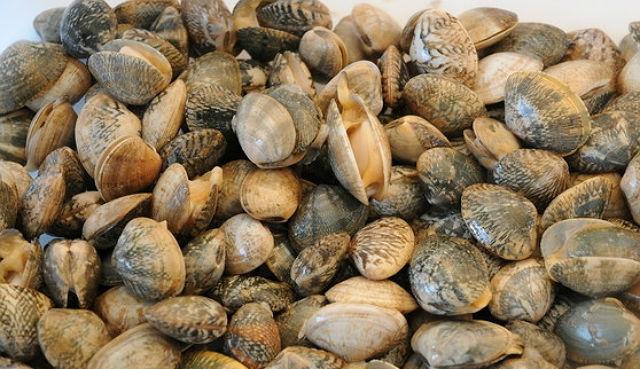Flower clams: oval fan shell, a beautiful pattern that grows naturally on the outside, each clam is different. When picking clams in the wet market, two legs will be stretched out in a quiet state, that is, fresh.

Oil clams: Very similar to flower clams, the pattern is more fine, the shell is more slender, the shell is smoother, and it is glowing with a layer of oil, so it is called "oil" clam. Steaming or stir-frying.
Mud cockle (also called blood cockle): A swollen fan shell with multiple ribs. Serve with a gentle blanch.
Hair cockles: like this black does not slip autumn a slip of leg hair, the shell is slightly kidney-shaped, called hair cockles, but also a light hot can be eaten.
Cockle (also known as Chibei): Much like the hairy cockle, but it is larger.
Scallops: Its shell is like a fan, and the methods are steamed scallops with garlic vermicelli, scallops with garlic, and scallops with shallot oil.
Arctic shellfish: One of the most important edible shellfish in Japan and nearby countries, it is a frequent customer of Japanese food stores, and is characterized by small red tongue.
Mussels, also called mussels, are called mussels, and dried products are called mussels
Clam: Small, generally about the size of the thumb head. Raise for two days, spit out the sediment, and fry again.
Clams: rectangular shell, one head with two legs, one head and one fleshy foot. The meat is tender and sweet, and it is generally steamed with cooking wine, can be fried in green onion oil, and can be pepper salt
Bamboo clams: Just like a section of bamboo, it can also be subdivided into two kinds: large bamboo clams and long bamboo clams. The difference between clams and bamboo clams is: clams are earthy yellow, flattened and rectangular, with a rough and thick shell; bamboo clams are basically round rod type, slender, thin shell, smooth.
band:
Oysters, also known as oysters, are the most zinc-rich of all foods.
Elephant mussels are high-grade seafood in the Far East, including Chinese and Japanese.